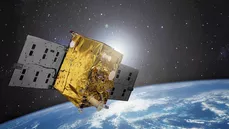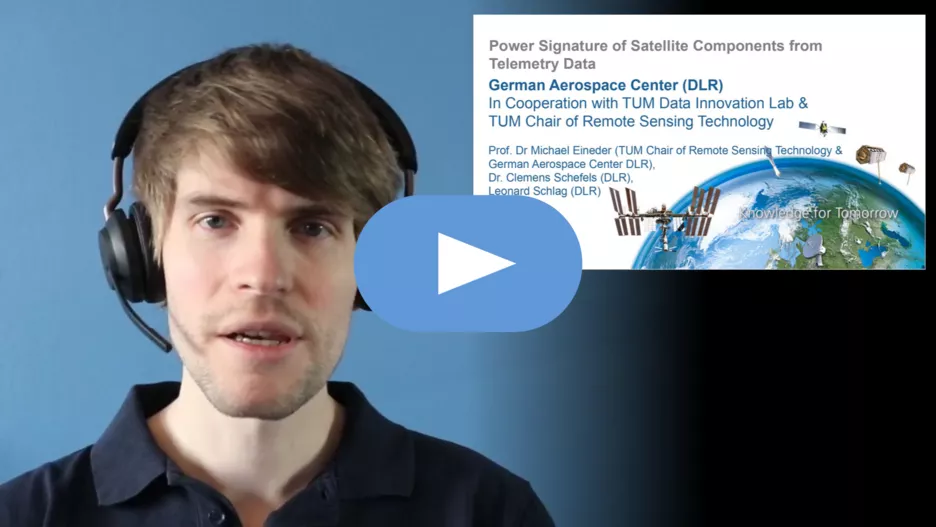Power Signature of Satellite Components from Telemetry Data
Results of this project are explained in the final report.
- Sponsored by: TUM Chair of Remote Sensing Technology (TUM Prof. Dr. Michael Eineder) in cooperation with the German Aerospace Center
- Project Lead: Dr. Ricardo Acevedo Cabra
- Scientific Lead: TUM Prof. Dr. Michael Eineder, Dr. Clemens Schefels and M.Sc. Leonard Schlag
- TUM Co-Mentor: Prof. Massimo Fornasier
- Term: Summer semester 2023
- Application deadline 29.01.2023
Apply to this project here

Once launched into space, satellites have to be remotely operated from earth. Therefore, they are equipped with many different sensors to keep track of the satellite's system status. For example, the two GRACE Follow-On satellites, operated by the German Space Operations Center (GSOC) at the German Aerospace Center (DLR), are each equipped with about 80,000 housekeeping sensors. With these collected telemetry data, like the status of the satellite's reaction wheels or the output of the solar panels, the satellite operators can safely control the satellite in outer space. These data are essential for conducting a satellite mission.
But what happens, if a sensor becomes corrupt or defect in the middle of a satellite mission? Since the satellite is in space, it cannot simply be fixed by a mechanic. Therefore, the satellite operators would have to fly the satellite blind without knowledge about its status, i.e., the status of the satellite components. In consequence to that, wrong operational decisions and the failure of an expensive satellite mission would be possible.
To prevent this horror scenario, we want to investigate a possible backup system for the sensors that indicate the status of satellite components. The goal of this project is to generate "Power Signature of Satellite Components from Telemetry Data". In detail, the power signatures will be derived from the power consumptions of a component, observed at the satellite's main power source. For that, we will provide you with lots of real telemetry data of one of our satellite missions reaching back many years. You will analyze the data with the help of Machine Learning and/or Deep Learning algorithms and extract the power signatures. Then, with these signatures, just by observing the power consumptions at the main power source, we can tell which component is switched on and maybe even its status. We're looking forward to your application -- launch your mission with us!
Important notice
Accepted students to this project should attend online workshops at the LRZ in April 2023 before the semester starts, unless they have proven knowledge. More information will be provided to students accepted to this project.
